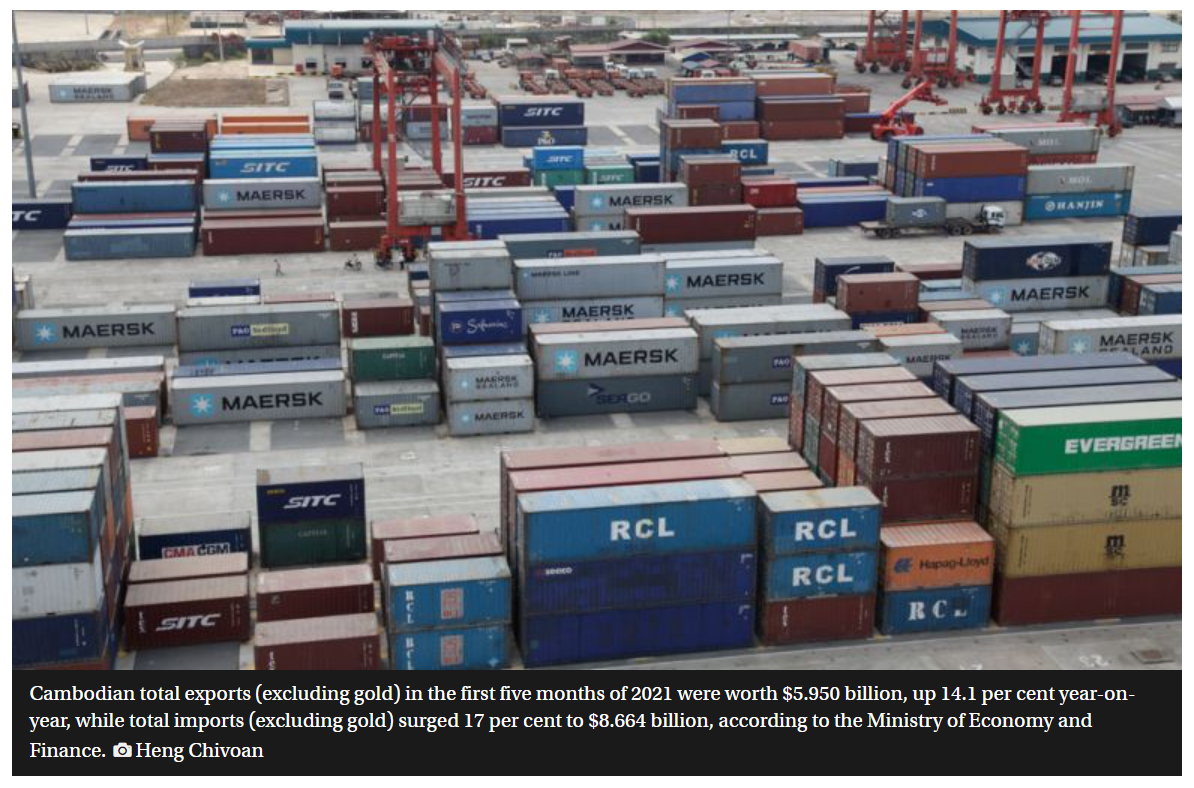Cambodia: Trade draft laws ‘effective in 2021’
Three major draft laws on trade are expected to take effect before the end of 2021, after receiving full support from National Assembly (NA) leaders and specialised committees, as well as the Senate, according to a Ministry of Commerce spokesman.
These are the draft laws on the ratification of the Regional Comprehensive Economic Partnership (RCEP) agreement and the bilateral Cambodia-China Free Trade Agreement (CCFTA), as well as the draft law on competition.
During a virtual meeting on August 3 between NA leaders, the Senate and the heads of the NA’s 10 specialised committees concerning the proposed legislature, Minister of Commerce Pan Sorasak said that with good and close cooperation with key ministries and institutions, the commerce ministry has achieved three important agreements to promote the attractiveness of investment in Cambodia, exports, as well as transparent competition.
He said the three draft laws are an important achievement of Royal Government efforts to be used in implementing the main work direction, and especially strengthening the capacity of Cambodia to continue its integration into the regional and global economies.
The draft laws are also in line with the Rectangular Strategy Phase IV of the Royal Government of the Sixth Legislature of the NA, he added.
Ministry spokesman Seang Thay told The Post on August 5 that after the full approval at the meeting, the ministry hopes that the three laws will be officially approved and come into force before the end of this year.
He added that the laws will greatly contribute to the promotion of Cambodia’s economic growth, as well as regional and global integration.
The ministry said in a press release that, as the largest free trade agreement in the region, the RCEP agreement will bring many benefits to the Cambodian economy, with the participation of the 10 ASEAN countries member and the other major trading partners involved, namely China, Japan, South Korea, New Zealand and Australia.
Through its 15 partners, the deal covers an estimated 2.2 billion people, or 30 per cent of the world’s population, with a combined gross domestic product (GDP) of $26.2 trillion, or 30 per cent of global GDP, and about 28 per cent of world trade volume, according to 2019 data.
With RCEP negotiations as a base, the Jakarta-based Economic Research Institute for ASEAN and East Asia (ERIA) found that the deal would boost the Kingdom’s GDP an additional two per cent, increase exports by an extra 7.3 per cent and raise investment by an added 23.4 per cent. More importantly, it will contribute to the rapid recovery of the Cambodian economy and the region from the Covid-19 crisis.
And the CCFTA will help Cambodia gain a larger market, especially for agricultural products such as fruits and vegetables, processed products and handicrafts, through customs and tariff facilitation and product of origin rules.
On the other hand, the competition law will protect and encourage businesspeople to compete fairly and honestly, increase economic efficiency and attract investment, as well as create more new businesses to support the national economy.
Senate president Say Chhum voiced full support for the three draft laws and expressed appreciation to the ministry and the Inter-Ministerial-Institutional Negotiation Working Group for their efforts to establish trade laws and regulations aimed at improving the business environment and, in particular, striving to successfully conclude RCEP and CCFTA talks.
Cambodia Chamber of Commerce vice-president Lim Heng said all FTAs, whether bilateral or regional, are positive for the Cambodian economy, providing not only access to larger export markets, but also a boost to international trade capacity.
He said the competition law will also play an important role in maintaining sustainability and investor confidence. “When all these laws come into force, Cambodia expects to be able to attract more investors to invest.”
Source: https://www.phnompenhpost.com/business/trade-draft-laws-effective-2021


 English
English




